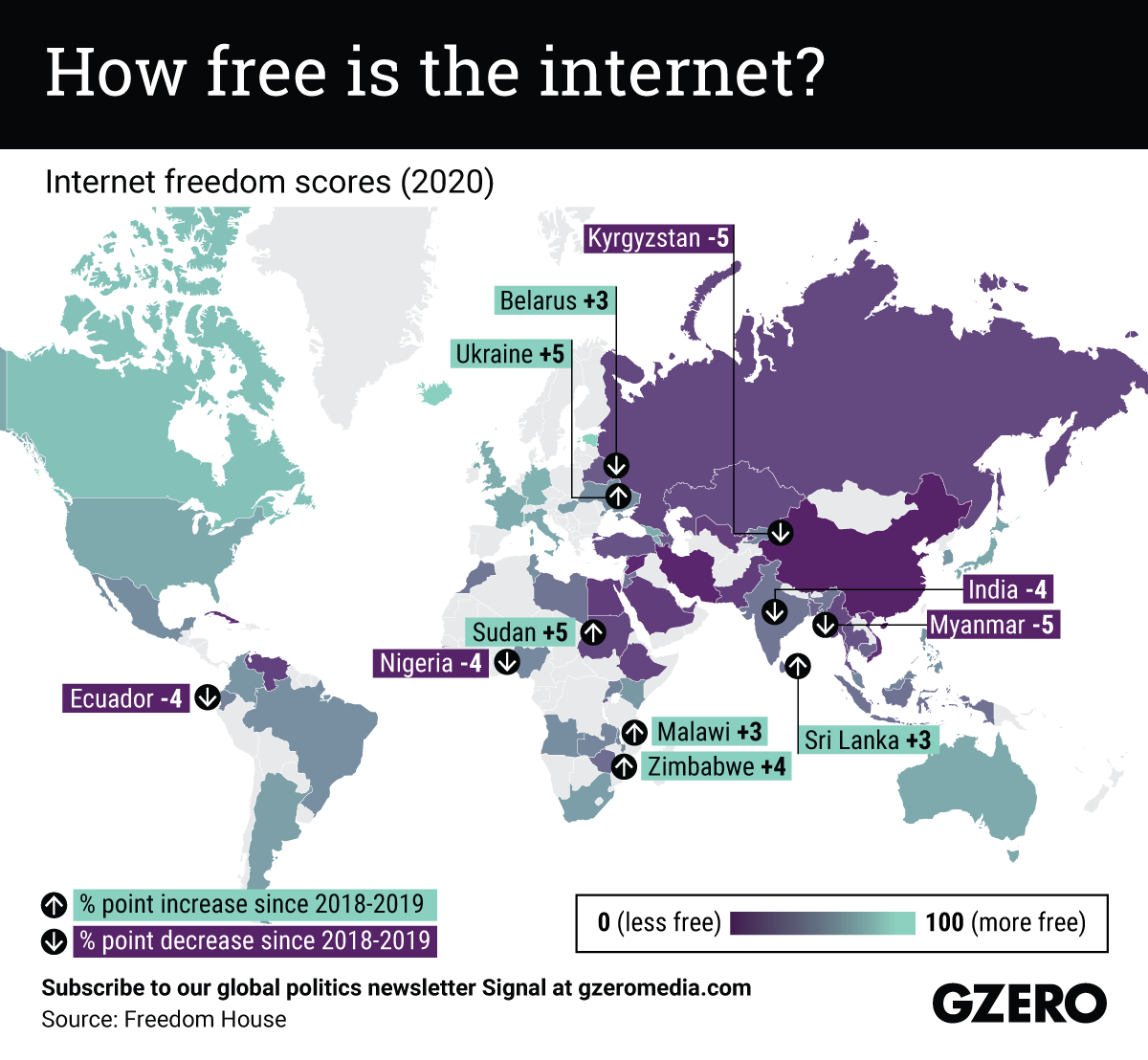The Graphic Truth: How free is the internet?
October 20, 2020
As more human activities go online to prevent the spread of COVID-19, the coronavirus has actually made the internet less free than before in many parts of the world. Freedom House warns that political leaders are using the pandemic to suppress access to information under the guise of combating fake news, to justify online surveillance that otherwise would be deemed too intrusive, and to break up the World Wide Web with so-called "cyber sovereignty" regulations that are drawing national borders on the online distribution of information. We take a look at the state of internet freedom in 68 countries, highlighting the top five that have improved and declined the most.
